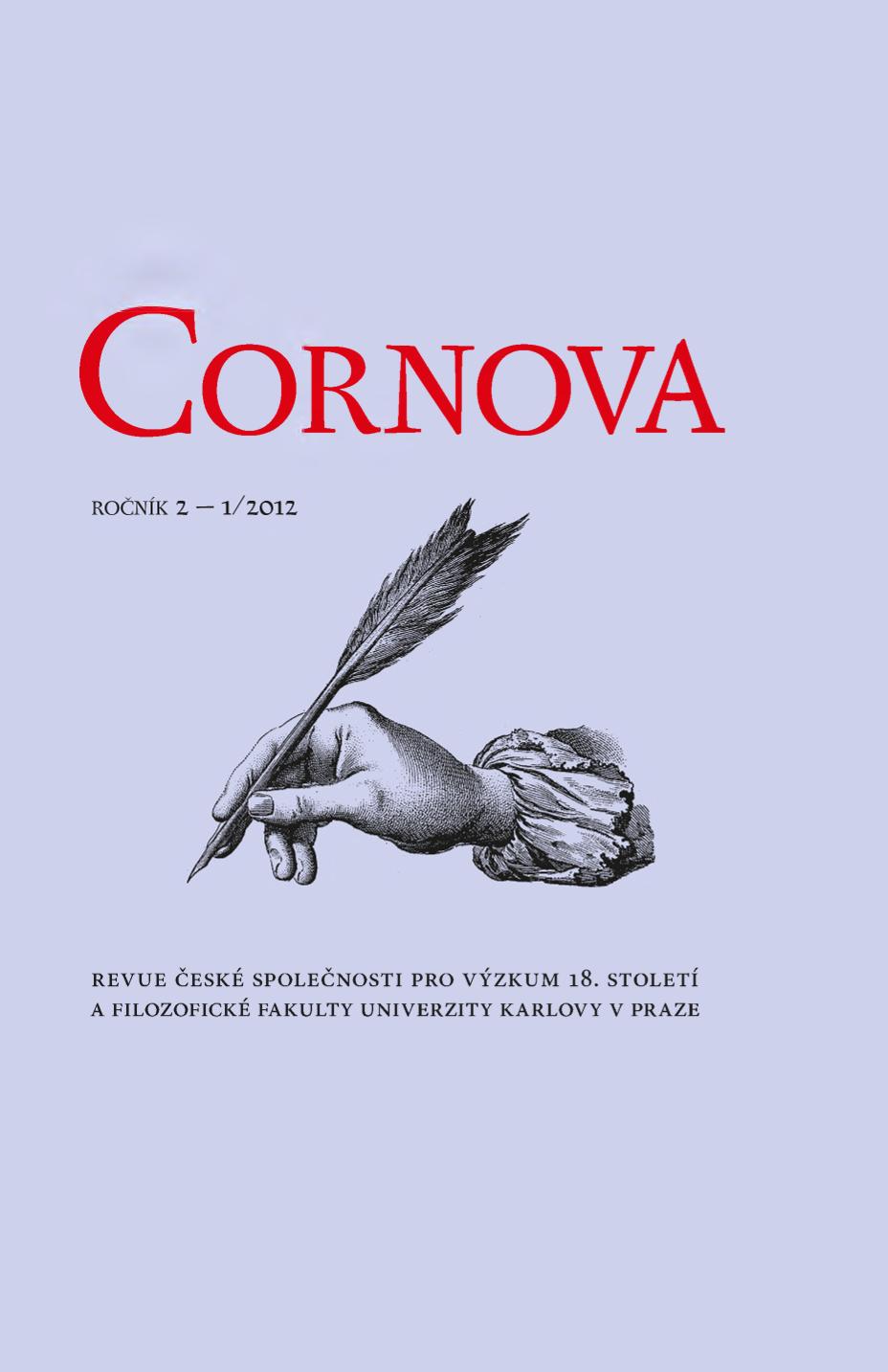Neznámý zápis z Meißnerových přednášek z estetiky a rétoriky (Pokus o dataci a charakteristiku vídeňského rukopisu)
Unknown Notes of Meißner’s Lectures in Aesthetics and Rhetoric: An Attempt to Date and Describe a Vienna Manuscript
Author(s): Tomáš HlobilSubject(s): Aesthetics, Higher Education , History of Education, 18th Century, 19th Century, Rhetoric
Published by: AV ČR - Akademie věd České republiky - Ústav pro českou literaturu
Keywords: August Gottlieb Meißner; Aesthetics; Prague University; Romanticism;
Summary/Abstract: This essay aims to describe hitherto unknown notes of aesthetics lectures given by August Gottlieb Meißner (1753–1807) at Prague University. It compares these notes (made by a certain Wagner, and deposited in the Wienbibliothek im Rathaus) with notes deposited in Czech libraries, and seeks to determine their place chronologically amongst notes made by others attending Meißner’s lectures over the years. The most important difference in content between the earlier known notes and Wagner’s is Meißner’s negative attitude towards the Schlegel brothers. This attitude slightly alters our existing notion of his views on the relationship between literature and morality. Taken alone, the collections of notes in Czech libraries had led one to conclude that this Prague ordinarius was an ardent libertine, who dared, even at a conservative Austrian university, to push for the autonomy of art, including a thorough split between art and morality, regarding not only works of art, but also, to a certain extent, the artists themselves. By contrast, the Vienna MS as a matter of priority restricts this split to art, and limits it to the higher, moral aims of the artist as citizen. His approach to questions of morality and to the Schlegel brothers demonstrates that while Meißner considered himself part of the liberally enlightened current of contemporaneous literature, which made moving the emotions the central aim of art, he was no longer an adherent of up -and -coming Romanticism with its extreme conviction about unlimited authorial liberty, which stemmed from the philosophical Idealism of the times. This attitude to the Schlegel brothers also suggests that Wagner attended Meißner’s lectures in aesthetics and rhetoric in the winter of 1800/1.
Journal: Cornova
- Issue Year: 02/2012
- Issue No: 01
- Page Range: 19-27
- Page Count: 9
- Language: Czech

